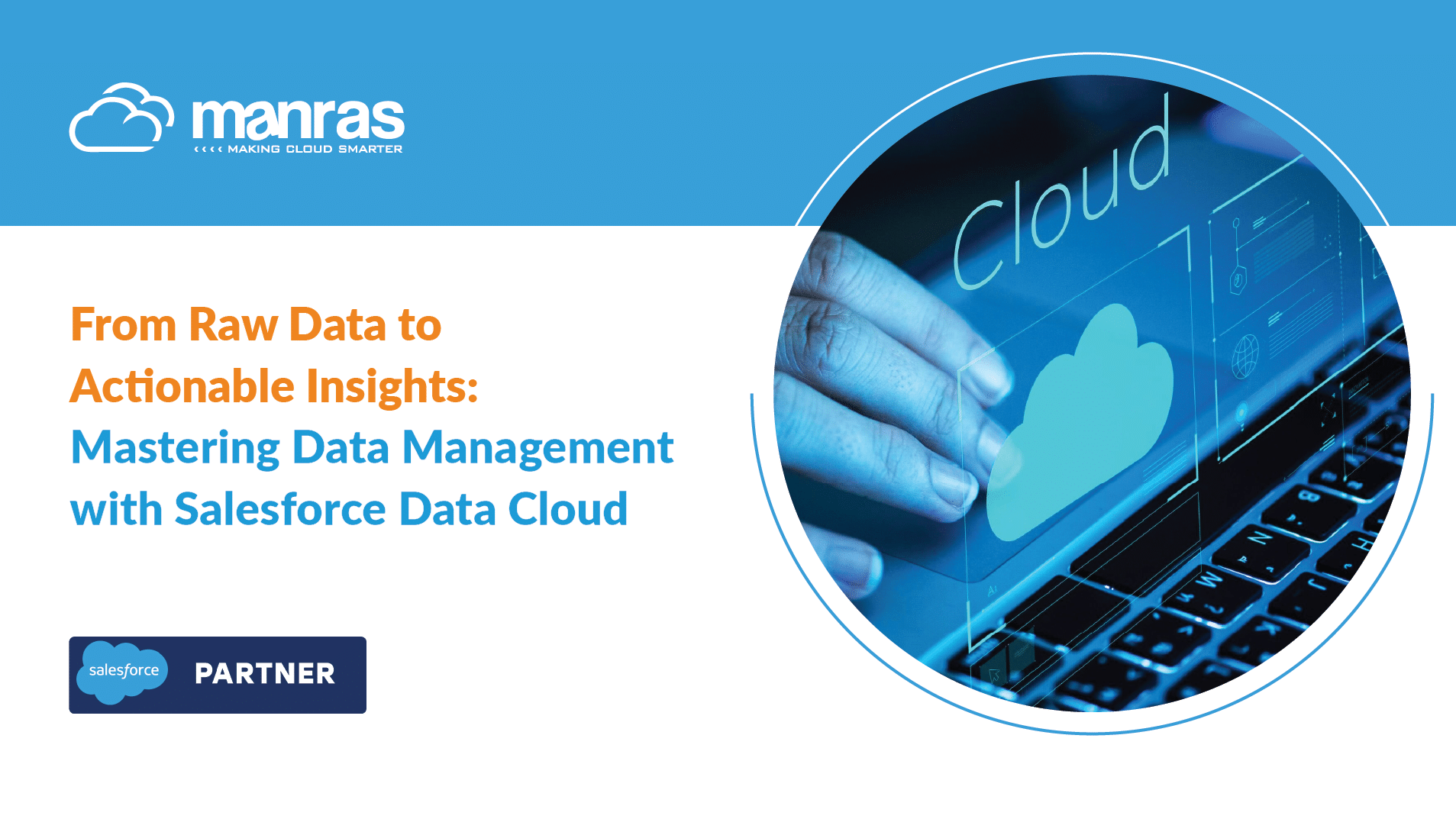
From Raw Data to Actionable Insights: Mastering Data Management with Salesforce Data Cloud
In today’s digital age, data has transformed from a mere byproduct to a vital asset, driving key business decisions. The power of data lies in its ability to unlock deep insights, offering businesses unprecedented opportunities to revolutionize marketing, operations, and overall practices. Salesforce Data Cloud provides a streamlined solution for harnessing this potential, enabling effective data transformation and delivering actionable insights.
In this article, we’ll dive into what Salesforce Data Cloud is, explore the benefits of data cloud insights, and understand how mastering analytics tools can drive your business forward.
What is Salesforce Data Cloud?
Salesforce Data Cloud is a comprehensive platform that enables businesses to manage and utilize their data efficiently. It supports Salesforce data transformation by gathering, organizing, and analyzing data from various sources in real time. This helps businesses make informed decisions, improve customer experiences, and enhance marketing strategies through data cloud insights. Integrated with Salesforce’s suite of products, it provides a centralized solution for seamless data management and analytics tools, giving companies easy access to relevant information when needed.
How to Master Data Management with Salesforce Data Cloud?
Here is how businesses can master data management and optimize their operations using Salesforce Data Cloud:
Connect Your Data
Begin by using the Data Stream tab in Salesforce Data Cloud to connect different data sources. This feature allows you to aggregate data from various systems, such as customer databases, sales records, and service logs. For instance, a retail company could link its Salesforce CRM for customer interactions with its sales records and service history, creating a centralized repository of information. This integration ensures that all your data is collected in one place, providing a complete and accurate picture of your business operations.
Harmonize Your Data
Once your data is collected, it needs to be structured properly to be useful. Salesforce Data Cloud facilitates this by offering options to map data to the standard Customer 360 Data Model or to create a custom model if needed. The Customer 360 Data Model is designed to handle common data types such as customer profiles and transaction histories. However, if your data includes unique elements, like specific product attributes or custom loyalty metrics, you can create a custom model that aligns with your business’s requirements. This process translates your raw data into a format that Salesforce Data Cloud can understand and use effectively.
Unify Your Data
After harmonizing the data, Salesforce Data Cloud helps you unify it into a single, comprehensive view. This step involves merging data from various sources into one cohesive profile. For example, a company might combine online shopping behavior, in-store purchase history, and customer service interactions into a single profile. This unified view allows for a deeper understanding of customer behavior and interactions across different touchpoints, leading to more personalized and effective engagement strategies.
Analyze for Insights
With your data unified, you can use Salesforce Data Cloud’s analytics tools to derive actionable insights. These tools enable you to explore patterns and trends within your data. For instance, you might analyze purchasing patterns to identify customers who frequently buy certain products but haven’t made a recent purchase. This insight can help tailor marketing efforts, such as sending targeted promotions to re-engage these customers. Additionally, you might find that certain service interactions correlate with increased sales, guiding future promotional strategies.
Activate Your Campaigns
Finally, use Salesforce Data Cloud to activate targeted campaigns based on your insights. The platform allows you to define specific audience segments and choose how to reach them, whether through email, SMS, or other communication channels. For example, if you identify a group of customers who have shown interest in a new product, you can create and launch a campaign aimed specifically at this group. Salesforce Data Cloud streamlines this process, enabling you to manage and track your campaigns efficiently, ensuring that your marketing efforts are both targeted and effective.
Conclusion
In conclusion, mastering data management with Salesforce Data Cloud equips businesses with the tools to better manage and utilize their data, leading to more informed decisions and enhanced operational efficiency. By effectively connecting various data sources and leveraging powerful analytics, companies can gain a clearer understanding of their operations and customer interactions, driving growth and strategic success.
For expert guidance on optimizing your Salesforce Data Cloud implementation, consider consulting with Manras. As a Salesforce certified consultant, Manras offers specialized support to help businesses fully leverage the platform’s capabilities, ensuring you get the most out of your data management efforts.


